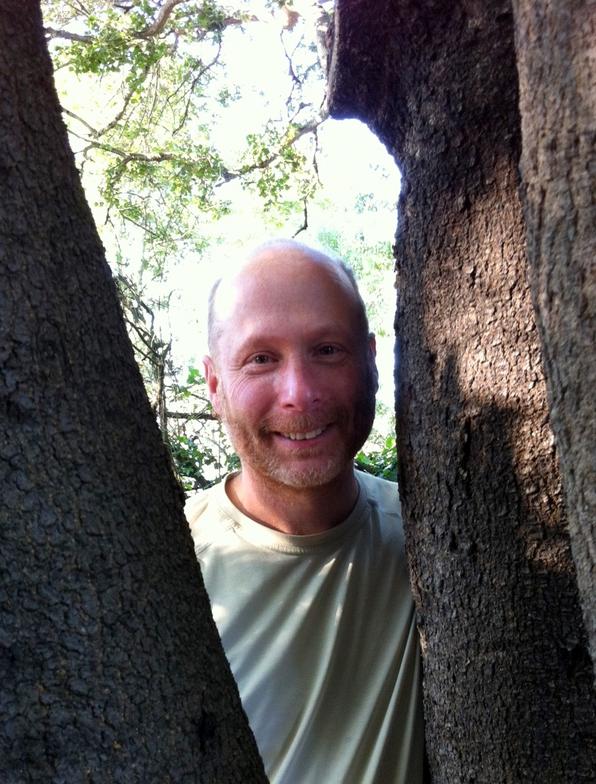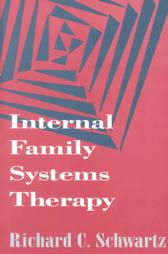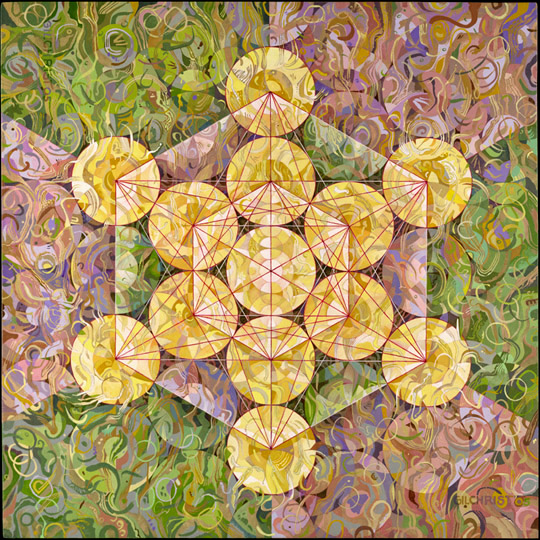Dave Cohen, MA, LCMHC
down to earth counseling
an integrative approach to support your natural unfolding
Brattleboro, VT / 802.258.7013
About Me
For the past four decades I have helped people grow through my work as a business owner, educator and youth mentor. As an integrative psychotherapist I draw from a range of approaches & lifelong inspirations, including somatic-based therapies, spiritual work, mindfulness and a connection to the natural world and its healing potential.
I have been trained in mind/body therapy with the Sensorimotor Psychotherapy Institute. I have also been trained in Internal Family Systems, a unique way to work with the different "parts" of ourselves. Additionally, I have long engaged with an in-depth study and practice of meditation, mindfulness, ecopsychology, and varied spiritual traditions.
I am a father as well as an avid cyclist, reader, musician, learner and lover of most things outdoors. As a psychotherapist I am dedicated not only to the well-being of my clients, but also to taking action to promote positive change in my community and the larger world. I am also involved in work around climate change and social issues.
Speaking of change, I believe we can have our share of fun and laughs while engaging in the work towards making things better, whether the focus is on our own self or on the world at large.
Have you ever wondered why you feel so good after visiting a beautiful waterfall, or taking a great hike, or working in the outdoors? The field of ecopsychology arose in the 1970’s through a loose association of scholars, psychologists, activists, scientists, and others endeavoring to understand the relationships between humans and the natural world we live in. The word literally means "study of our soul, mind and our home." Ecopsychology encompasses such aspects as ecological philosophy and responsibility, the meaning of wilderness, critiques of industrialized society, the psychopathology of normalcy (are we 'crazy' to be repeating 'normal' behaviors that are devastating our planet?), nature-deficit disorder, and many other areas. However, as the name implies, there has always been considerable emphasis on the psychology of our personal relationships with the natural world. Ecopsychology, then, is largely interested in the study of ‘emplacement’ and how we can counteract the fractured ‘displacement’ many of us experience in our modern industrialized society in relation to the natural world.
Ecopsychology and Ecotherapy [Click for top]
Have you ever thought about something that happened in the past and suddenly there was a queasy feeling in the pit of your stomach? Or have you ever felt some situation was literally a "pain in the neck?" The mind/body approach attends to how our body is processing emotions and thoughts and uses the bodily experience as a primary entry point in therapy, rather than our words and stories. Most importantly, this body-centered way of working concentrates on what you are experiencing in the ‘here and now.’ This approach is frequently described as a bottom up process, meaning that its focus is on inner sensations and physical movements which can facilitate changes in thoughts and body responses. Conversely, a top down approach like strictly "talk therapy" utilize reasoning and verbal skills first, engaging with the higher thought processes to create change.
Body/Mind Approach and Sensorimotor Psychotherapy
Internal Family Systems
Have you ever found yourself saying to yourself something like “one part of me feels good about this but another part is really not so sure?" A basic concept in Internal Family Systems (IFS) is the idea of the “parts” within each of us. Normally, I think of myself as being one person – I may contradict myself sometimes, and I may even be at war with myself inside, but I see myself as being one monolithic Me. IFS explores this Me as a system of parts. What are the parts that I am composed of, what are their roles, what are their agendas, and how well do they get along? We are, of course, a single entity, but on a different scale we can be seen as a multiplicity. Most people find the process of the IFS approach to be a very natural and compassionate way to address everything from depression, anxiety, to self-growth. I think IFS works so well because it honestly reflects how most of us think and it offers such a intuitive way to approach our parts and promote lasting healing.
Ecotherapy, a natural offshoot of ecopsychology, draws its inspiration from nature as a guide to aid in our healing. Ancient wisdom, as well as modern scientific inquiry, suggests that being in nature restores us physically, emotionally, and spiritually. I believe that's vital information. If that's important to you as well, I will at times work with clients on trails or in meadows and also help to track your engagement in the natural world. In addition, I'm keenly interested in the places and ecosystems that provide refuge for you and that broaden your connection to the world. I also work with clients to uncover new ways to explore the frustration and despair many of us experience in relation to to our society's devastating impact on the more-than-human world and to empower and revitalize our action in the world, whether it is for change in our own personal lifestyle or working in the larger community. My approach to ecotherapy is infused with the training I have received in body-centered therapy and the other approaches from which I draw. I like to think of ecotherapy as a way to integrate the body with "the Earth in mind." On that note, one of the great ecological thinkers and writers of our time, Paul Shepard, stated that "the nature of the mind is the mind of nature."
The field of ecotherapy is very new (even though this is an ancient idea) and approaches vary greatly among practitioners. One question that frequently comes up is if it is possible to do ecotherapy indoors. I say yes. One approach to ecotherapy is the use of natural world metaphors to help reflect back our emotional experiences. If you were to describe your present emotional state as a weather report, what would it sound like? When I ask that I often hear something about clouds, sun, high pressure systems, wind, rain, fog, moisture and many other meteorological phenomena. There is an endless list of natural world metaphors to draw from (such as plants, seasons, insect and animal behavior, rivers, mountains, ecological processes, etc.) that can be used to explore our emotions, development, relationships and so on. It is in this way that we may discover the transience of our mental states and reflect on the similarities of our mind and body states to the ever changing ebb and flow of nature. The idea here is to explore the fertility of our cognitive and sensory experience and how they are matched by the aspects and processes of our planet. This not only "normalizes" our emotional currents and behaviors, but also "naturalizies" them in the context of the very terrain into which we are woven.
As with any of the approaches I utilize, ecotherapy is only considered if you this interests you and you are motivated to give it a try. If this is not your cup of tea, we will work in other ways more appropriate to you and your needs.
IFS was founded by psychologist Richard Schwartz and is based on family system therapy approaches that developed during the 1950's and 60's. Systems theories, in general, focus on interconnectivity - that the various parts of any system have functional as well as structural relationships to each other . So while it is obvious that a family is a system of many interconnected parts (parents, siblings, grandparents, ancestors, friends, etc.), so it seems that we have an entire family within us. Again, part of me feels this way and the other part feels that way. What we often find in doing IFS work is that when a part of our thought system has changed, other parts will sometimes relax, resulting in a substantial subsiding of negative emotion and thought. You feel better and not only understand yourself a bit more, but feel more like your true self! The work can actually be fun, interesting, relaxing, and insightful. And since we are working with each aspect of ourselves with the utmost curiosity and compassion (in IFS no part is bad), sessions have the potential to be more energizing rather than emotionally taxing. [Go back to top of page]
It is sometimes surprising for a client to find out that their body holds so much information. However, when we learn that the body retains a great deal of intelligence and that it is capable of storing memories, particularly the difficult and traumatic ones, we may begin to take notice that within every moment there is a multitude of ways that our body responds to the people and world around us. Experiencing ourselves in this way, we end up feeling more connected to what we are actually feeling and thinking, too!
I
really like the particular approach I have been trained in -
Sensorimotor Psychotherapy - because it is a nice bridge between
traditional talk therapy and truly attending to what the body is
saying. I especially like that when Pat Ogden, the founder of Sensorimotor Psychotherapy, developed this approach in the 1980's she incorporated within it a aspects from a number of other proven approaches. Sensorimotor Psychotherapy is now a
unique and profound blend of some of the most elegant, yet effective
ways of doing this kind of work. [Go back to top of page]
Perhaps you have heard the word “eclectic” used a lot these days. It does get batted around a bit. For me it means that I draw on one approach or another depending on what I think the client might benefit from and what he or she desires. But, more than that, it also means that I will sometimes blend approaches together, helping to create a unique way to work with you – you being a unique individual. However, before I go any further maybe I need to say what I mean by ‘approaches.’ Approaches are the different ways in which I do the work of counseling and for which I’m trained to help keep us on track toward whatever goals we agree upon. The approaches I draw from range from foundational skills like deep listening and attending (staying connected to you) to the more in-depth skills like mindfulness, meditation, breathing practices, and spiritual practice. Then there are the approaches for which I have done intensive training and study like Internal Family Systems, mind/body approaches and ecopsychology.
Eclectic and Integrative Counseling
Integrative counseling focuses on bringing a feeling of completeness to our experience in the world. Integrative used in this manner means that we are willing to engage with a wider sense of who we are as a human being – we are aware of the connections between mind, body, spirit, and to the greater world around us. For each one of us that might mean something different, however it is pretty clear that at the times in our life when we experience integration we feel more in tune with ourselves, with those around us, and with the greater-than-human world. We think clearer, respond more effectively, recover quicker, react better, and feel more of who we really are.
Finally, none of these skills or approaches are a mystery. In fact, I think it is important to explain any approach so that we both understand what it is and why we are using it. However, one fascinating mystery we might encounter has something to do with fact that you are a complex and unique creature. In many instances it is difficult to describe or even understand how the healing takes place – we just know it is happening. So the mystery has little to do with me and almost everything to do with you and your process. Finally, while I am engaged in my work as a counselor, I am utilizing many of these approaches on my own self. I’m tracking and checking in with my own internal responses, be they memories, emotions, or body responses, just like I might be helping you to do. If I’m not self-aware in this way, I won’t be able to effectively do the work with you. [Back to top of page]









